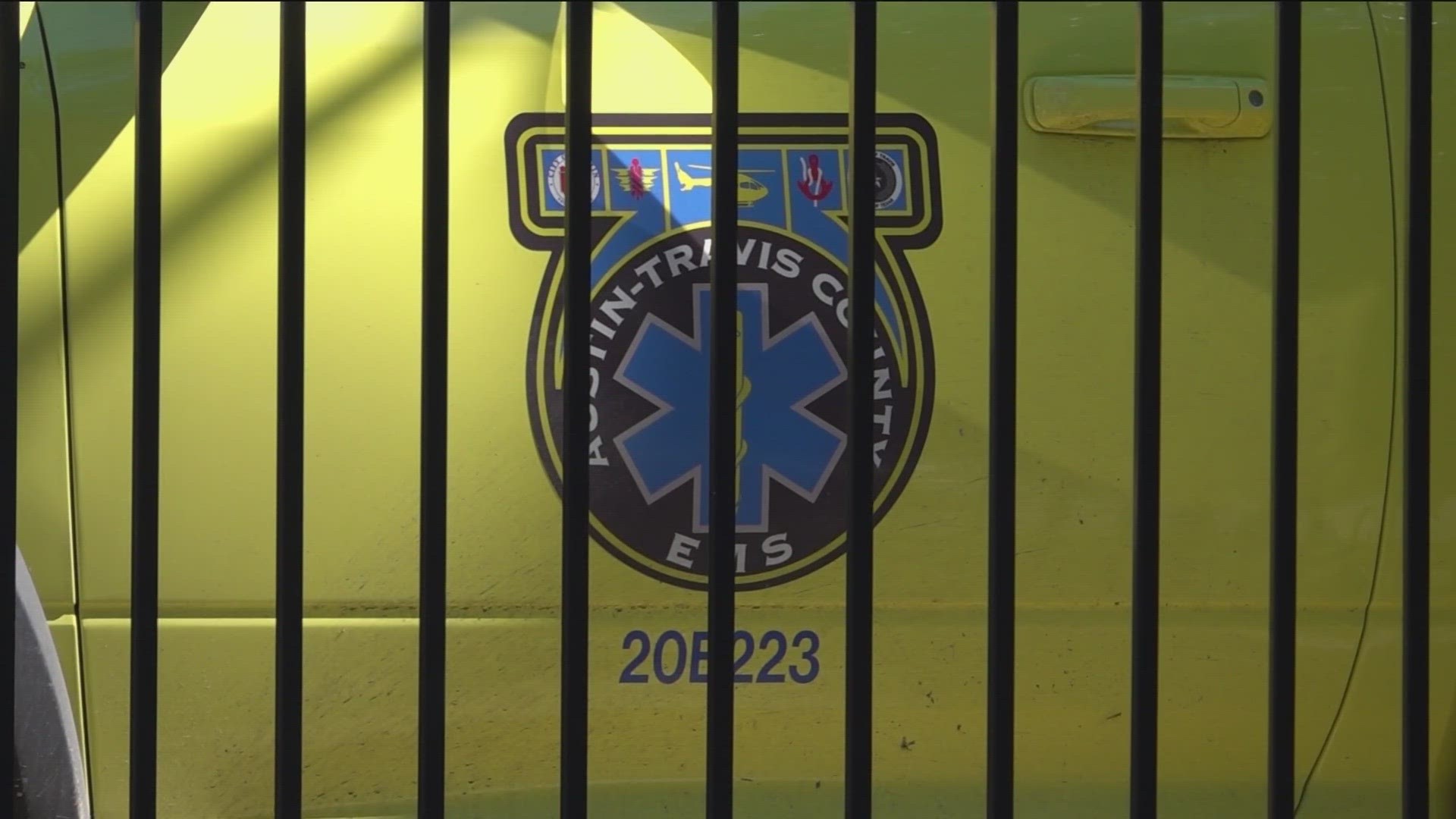AUSTIN, Texas — A year after what officials deemed crisis-level staffing in Austin-Travis County Emergency Medical Services (ATCEMS), the agency still grapples with a nationwide challenge of hiring and keeping enough medics on the streets. In recent months ATCEMS has taken what leaders describe as new steps to address staffing issues – easing the pinch but warning that the problem could persist for months to come.
The KVUE Defenders have examined what this means for people in a medical emergency.
When 30 new cadets graduated from ATCEMS training in September and another 29 earlier in the spring, officials celebrated not only their accomplishment but a new crop of employees to shrink what they say has been a challenging vacancy rate.
In the months after the worst of the COVID-19 pandemic, ATCEMS struggled to keep enough officers in the job – and on the streets.
“It’s been really bad for a lot of reasons,” said Selena Xia, an ATCEMS captain and president of the Austin EMS Association.
The Defenders reviewed months of staffing records obtained through ATCEMS, which showed that from June 2022 through March 2023, vacancy rates reached unprecedented levels of above 20% each month and as high as 25% a year ago.
That shortage is part of a well-documented national issue after the high burnout COVID-19 pandemic that ATCEMS Director Robert Luckritz has watched play out in his department.
"This is a national issue that is on a catastrophic path for us as a nation to look at how we are going to staff ambulances,” Luckritz said.
Texas lawmakers in 2021 also passed a $21.7 million effort at medic training and recruitment statewide through the American Rescue Plan Act. As a result of staffing issues in Austin, ATCEMS required medics to work overtime, fueling feelings of job fatigue, as recalled by former ACTEMS medic Erin Ruiz.
"It's one of the straws that broke the camel's back for me,” Ruiz told the Defenders. “Had staffing been at a reasonable level, I would have stayed."
The situation caused some medics like Ruiz to leave the job. She left earlier this summer after nine years of what she says was a fulfilling career.
"It started to affect my health, my physical health. And so, it took that to say – and my husband saying, 'You know, I can see it,'" Ruiz said.
EMS officials say they have recently adopted new steps to address the key issue that Ruiz said caused her to leave.
Luckritz said ATCEMS has made strides toward bringing the agency to full staffing and that the City of Austin has given ATCEMS permission to have two more cadet classes a year, with 30 to 40 students each – making up the turnover of the average one-medic-per-week departure that the agency generally sees.
ATCEMS officials have also cut the requirement that some medics work mandatory overtime, which many say caused long term exhaustion. If an ambulance does not have staffing, it instead closes for a shift and nearby units respond. And the agency, through contract negotiations, has begun hiring medics from other EMS systems without having to go through their own training program, putting them on the street faster.
“As we look ahead, we are seeing light at the end of the tunnel,” Luckritz told the Defenders.
Records show the staffing vacancy level decreased to 17% in July and August and 15% in September.
Luckritz said ambulances are available if a person calls 911 – without delay – and he added that response times for life-threatening emergencies have held steady over the past year for more than 130,000 calls, despite staffing struggles.
Xie said she remains hopeful that new efforts by ATCEMS officials will continue to ease the shortfall, improving the morale of existing employees and helping recruit others.
"I am optimistic, yes. And I really look forward to a time when it feels like we have some more stability so that we can focus on some of these other programs that improve morale and improve satisfaction about the job,” Xie said.
Ruiz, who now trains medics near Waco through a government grant-funded program, said that as ATCEMS works to address staffing, she would one day consider returning to the job she loved.
"I do love the human aspect of it,” Ruiz said. “You are helping everybody. Every single call, you are helping someone. Through a mental health crisis, or if they just totaled their car and needed to go to a trauma center. All of that. It is a very gratifying career."
Luckritz said that he believes with all of the measures the agency has put in place, it should have a vacancy rate in the single digits within the next year, marking a full recovery within the agency from the COVID-19 pandemic.

